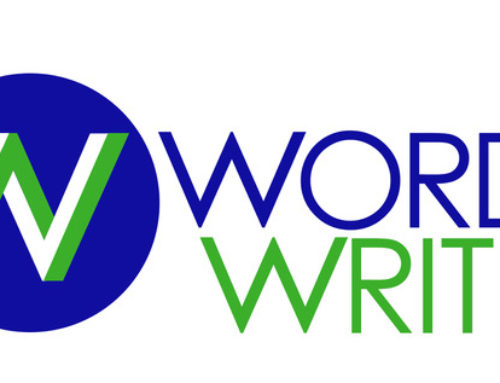Clients frequently ask me, what is the return on investment for public relations? The strict definition of return on investment (ROI) is the amount of income earned through public relations initiatives after subtracting program expenditures.
However, the qualitative results of PR cannot be captured by simple quantitative measurements, such as advertising equivalency values or number of impressions. The strategic value to an organization of a well thought-out and well-executed public relations program goes far beyond these numbers to the very heart of how a company is perceived and received by the media and the company’s stakeholders. This perception – and reputation – is correlated with the actual value of the firm.
This post looks at the big picture: the effect of PR and reputation-building on the value of a firm, and its profitability, sales, and investor relations.
What is Reputation?
According to the Merriam-Webster dictionary, reputation is the “common opinion that people have about someone or something.” In business, it is so much more.
From a company’s perspective, reputation is a crucial intangible asset. Consumers behave in desirable ways (invest, join, support) with companies they believe meet their needs better than their competitors. Over time and with consistency, companies develop a reputation.
A company’s reputation not only creates barriers to competition by developing and fostering consumer loyalty, it also differentiates a company from its competitors, and builds a confidence that translates into financial rewards.
Why Public Relations?
Managing reputation is among public relations’ core areas of expertise. Earned media or publicity gained through promotional efforts (as opposed to “paid media” which refers to publicity gained through advertising) is the cornerstone of public relations.
Today’s PR isn’t just about looking good; it’s good for business. In the current evolving media landscape, a solid reputation can translate into better financial performance, higher revenues, greater market share, higher valuation, and positive consumer behavior. With impact like that, a solid public relations program can be considered an investment toward increased revenues rather than a cost to the firm.
What is the Financial Impact of Reputation Building?
- Companies with good reputations outperformed companies with poor reputations on every financial measure over a five-year period.[i]
- Reputation contributes between 3 – 7.5 percent of revenues yearly.[ii]
- Research on the airline industry indicates that for each one-point increase in airline reputation, consumers were willing to pay $18 more for a plane ticket.[iii]
- A distinguished investment bank EVP noted when his firm maintained a reputation above the “line of best fit” of the reputations of competitive investment banks, his firm gained market share.[iv]
- Reputation has particular value in IPOs, mergers, acquisitions and partnerships. The intangible asset of reputation is valued– often implicitly, sometimes explicitly—in financial markets by analysts, in stock prices, in ratings by credit agencies and for private lender programs. [v]
- In a survey of 1,000 U.K. consumers,
- 91 percent said “the way a company behaves towards its customers and communities was influential when making a purchase.”
- 74 percent of consumers would like brands to better communicate their values before they make a purchasing decision.
- 6 out of 10 consumers said that awareness of a company’s ethics affected their decision-making. [vi]
In today’s “connected” world, a company’s reputation is more crucial than ever. Reputation influences purchase decision-makers, drives demand, and impacts a company’s financial success. Opportunities for earned media, a cornerstone of public relations, have been radically changing and expanding. Today’s influencers include traditional media, new media, social media and brand-owned content. Savvy PR professionals can move beyond traditional paradigms, embrace opportunities to build reputation and connection in an evolving media landscape, and add value to their client’s bottom line.
If you’re in healthcare, insurance, technology, or other professional services industries, and want to focus on your company’s reputation, contact Scott Public Relations. We can help with PR, marketing, and social media campaigns to move your company forward.
Like what you’ve read? Follow Scott Public Relations on Facebook , Twitter, Pinterest, LinkedIn and Google+. For convenient blog updates, sign up for the Einsight RSS feed!
(Note: Many internet browser platforms are discontinuing their internal RSS reader. If you are viewing this in Google Chrome the RSS feed will not work properly since they discontinued Google Reader. If you have an independent reader set up already you should be fine. If you do not, may we suggest you look to Digg Reader, AOL Reader, or our personal favorite – Feedly to handle your RSS feeds. Happy reading.)
————————————————————-
[i] Fombrun, C. and Van Riel, C. (2004), Fame and Fortune: How Successful Companies Build Winning Reputations, Prentice Hall, Upper Saddle River, NJ.
[ii] Davies , G . , Chun , R . , Da Silva , R . and Roper , S . (2003, Corporate Reputation and Competitiveness , Routledge, London, UK
[iii] Graham, M. and P. Bansal (2007), ‘Customers’ willingness to pay for reputation: the context of airline companies’, Corporate Reputation Review, 10( 3) :189-200
[iv] Institute for PR, https://www.instituteforpr.org/reputation/
[v] Institute for PR, https://www.instituteforpr.org/reputation/
[vi] Consumers Consider Brands’ Ethics When Shopping, According to Survey, Marketing, July 28, 2011





Leave A Comment